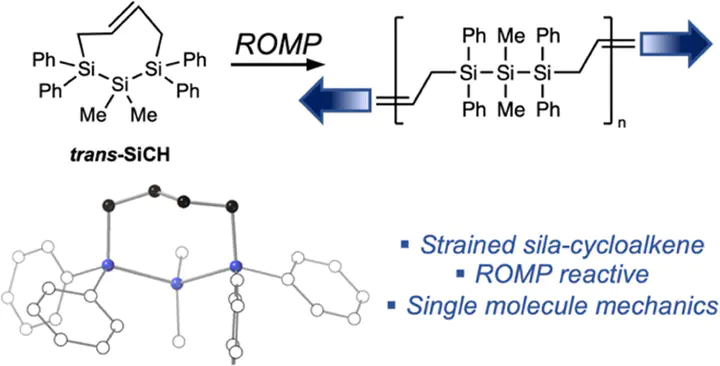Synthesis and Ring-opening Metathesis Polymerization of a Strained trans-Silacycloheptene and Single Molecule Mechanics of its Polymer

Abstract
The cis- and trans-isomers of a silacycloheptene were selectively synthesized by the alkylation of a silyl dianion, a novel approach to strained cycloalkenes. The trans-silacycloheptene (trans-SiCH) was significantly more strained than the cis isomer, as predicted by quantum chemical calculations and confirmed by crystallographic signatures of a twisted alkene. Each isomer exhibited distinct reactivity toward ring-opening metathesis polymerization (ROMP), where only trans-SiCH afforded high-molar-mass polymer under enthalpy-driven ROMP. Hypothesizing that the introduction of silicon might result in increased molecular compliance at large extensions, we compared poly(trans-SiCH) to organic polymers by single-molecule force spectroscopy (SMFS). Force-extension curves from SMFS showed that poly(trans-SiCH) is more easily overstretched than two carbon-based analogues, polycyclooctene and polybutadiene, with stretching constants that agree well with the results of computational simulations.